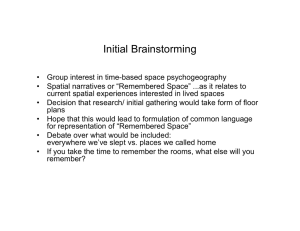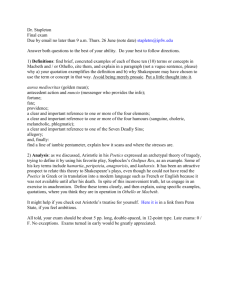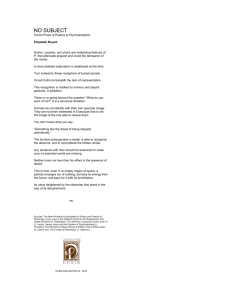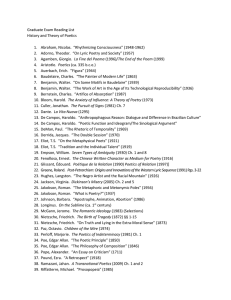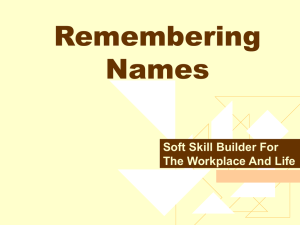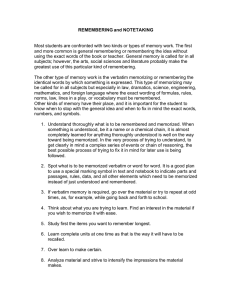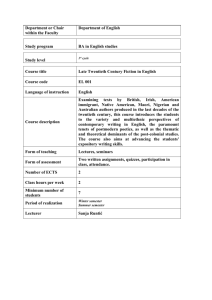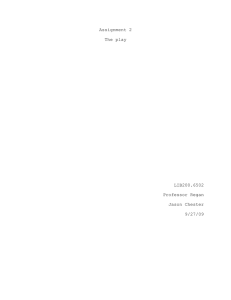Home/of/Memory Memory/of/Home... Homember It ‘For our house is our corner of the
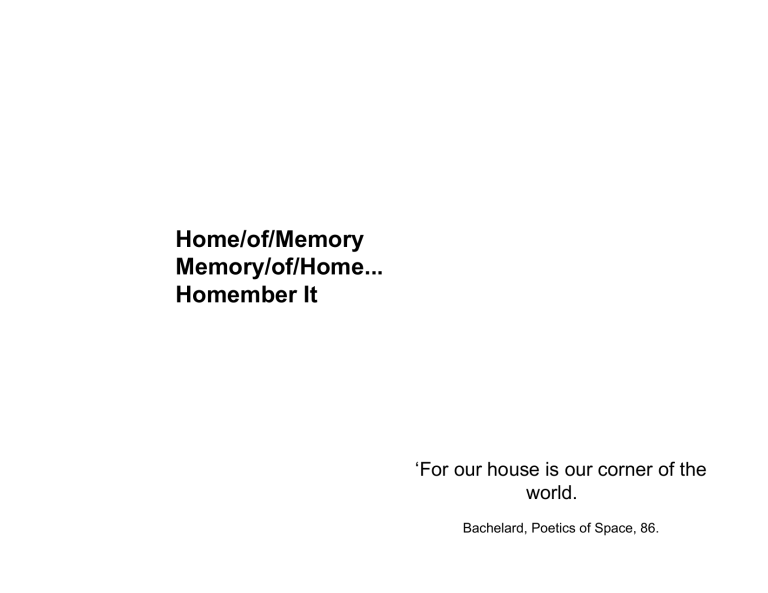
Home/of/Memory
Memory/of/Home...
Homember It
‘For our house is our corner of the world.
Bachelard, Poetics of Space, 86.
Where we live today
Initial Brainstorming
• Group interest in time-based space psychogeography
• Spatial narratives or “Remembered Space” ...as it relates to current spatial experiences interested in lived spaces
• Decision that research/ initial gathering would take form of floor plans
• Hope that this would lead to formulation of common language for representation of “Remembered Space”
• Debate over what would be included: everywhere we’ve slept vs. places we called home
• If you take the time to remember the rooms, what else will you remember?
John’s
Houses/Apartments
Morgan’s
Houses/Apartments
Charlie’s Apartments
Kate’s Homes
Result of “Gathering” our Floor Plans
Desire to encourage others to go through this process of remembering their previous homes
How?
How to create actual or potential “time-space” for remembered space to happen:
• Idea of a GAME
Architectural problem: what is the system: is it for one or for many, or for both?
“rounds” with random questions which act as memory prompts for actions to take with pieces on board
• How abstract do we go: fear of losing purpose or potency
• Pieces that are instructions
• Is it real or virtual game? Online or physical?
First idea: the Building
Board Game
First idea: the Building
Board Game
Other Idea: The Memory
Container Kit
With memory-stimulating question cards
Decision to produce the kits
•The giving of the object is a prompter: it can sit on a desk until used.
• It can be done on one’s own or with others
• Produces an object that can be kept or shared- online or board-game versions would not.
Some images gathered
“Thus we cover the universe with drawings we have lived. These drawings need not be exact.
They need only to be tonalized on the muse of our inner space.” (91)
Poetics of Space
“Each one of us should then, speak of his roads, his crossroads, his roadside benches; each one of us should make a surveyor’s map of his lost fields and meadows.” (91)
Poetics of Space
“ Memories of the outside world will never have the same tonality as those of home and, by recalling these memories, we add to our store of dreams; we are never real historians, but always near poets, and our emotion is perhaps nothing but an expression of a poetry that was lost.” (87)
Poetics of Space
“When we dream of the house we were born in, in the utmost depths of revery, we participate in this original warmth, in this well-tempered matter of the material paradise.”
(88)
Poetics of Space
Questions added by the participants:
Where did you sit when you were talking on the phone?
Where have you been sick in your house?
When you caught the stomach flu, where did you vomit?
Where did you go when you first got kissed ... The biggest smile ever!
Remarks
•Generally, kits were well received; people liked pencils and erasers, scale.
•Most people didn’t get through all the question cards, some people remarked that they didn’t need the questions to do the exercise.
•Process of remembering feels like going to therapy for some participants.
•Process of remembering involved moving through the space in the mind-- an active procession/ narrative implied.
•Notable difference in responses based on age
Mnemonic Space
”While it is individuals themselves who partake in the actual physiological process of remembering, it is the social cohort through which memory endures and derives its strength.”
-Barandon, 9.
“It was Halbwach’s idea of collective memory that eventually filled the void between active and passive phases of collective life, between periods of effervescence and the everyday.”
-Barandon, 11.
